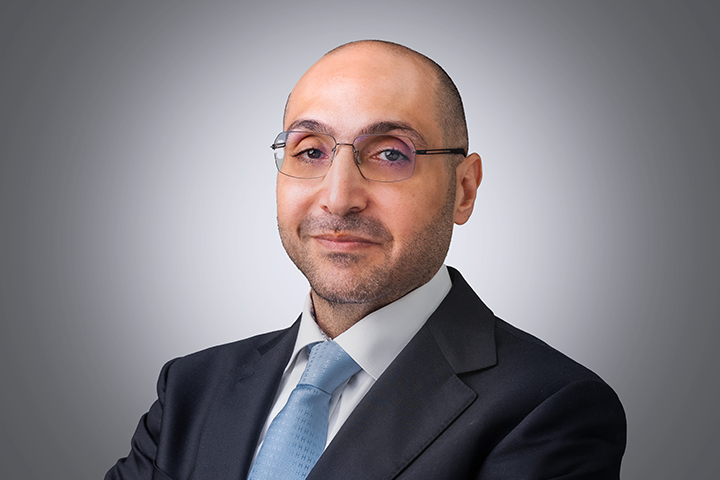Family Office
From Tradition To Transaction – The Rise Of Private Equity In Middle East Family Businesses

The following article from law firm Charles Russell Speechlys explores the involvement of Middle East-based families in the private equity space and reflects on wider trends around private market investing and development.
According to a recent KPMG report, family-owned businesses in the United Arab Emirates account for 90 per cent of the GDP, employ 80 per cent of the workforce, and represent around 90 per cent of the private companies. Traditionally seen as the economic backbone, these family-run businesses are now increasingly embracing private equity as a strategic partner for growth and modernisation.
The following commentary on such trends is from the authors Ahmad Anani, Jihane Rizk and Sevcan Aydemir, at Charles Russell Speechlys (more on the writers below this article). The editors are pleased to share this content; the usual editorial disclaimers apply to views of guest writers. Please treat such articles as a prompt for a conversation and get involved if you wish to comment. Email tom.burroughes@wealthbriefing.com and amanda.cheesley@clearviewpublishing.com
Family businesses in the Middle East
In the Middle East, a family business is more than a commercial
venture – it is a legacy, often with family members holding
majority ownership and managing daily operations. These
businesses form the economic backbone of the region,
significantly contributing to GDP, employment, and stability.
According to KPMG’s report The regenerative power of family
businesses: United Arab Emirates edition (October
2022), family-owned entities in the UAE account for 60 per cent
of gross domestic product, employ 80 per cent of the workforce,
and represent 90 per cent of private companies.
These businesses are characterised by governance structures
centred on the family head, with values rooted in trust, loyalty,
and long-term relationships. Succession planning is a critical
aspect, as many family businesses undergo generational
transitions. However, they face challenges in an evolving
economic landscape, including limited access to capital,
resistance to change, and succession planning difficulties. The
need for modernisation and professionalisation is becoming
increasingly urgent for these businesses to remain competitive in
a globalised market.
The emergence of private equity in family
businesses
Private equity has become a powerful force in the global
financial landscape, and the Middle East is no exception. Beyond
the funds’ arena, it serves as a form of business funding where a
company receives capital from a private equity investor in
exchange for a stake. These transactions are typically structured
as direct acquisitions of shares in mature companies. Private
equity firms employ strategies such as growth capital, buyouts,
and minority stakes, offering family businesses the resources
needed for expansion, professional management, modernisation, and
strategic guidance.
The growing shift towards private equity in family businesses is
highlighted by PwC’s Private Equity and Family Business
Survey 2023. The survey reveals a dramatic change: 90 per
cent of family businesses are now open to private equity
investments, up from 61 per cent a decade ago and just 18 per
cent in 2011. This increasing openness reflects a better
understanding of the benefits private equity can provide.
Similarly, private equity investors are highly optimistic, with
98 per cent planning to invest in family businesses in the coming
years. This enthusiasm highlights the unique value family
businesses bring, including strong market positions and
significant growth potential.
The convergence of tradition and modern finance in the
Middle East
The landscape of private equity in Middle Eastern family
businesses is being transformed by strategic initiatives and
regulatory reforms. Governments across the region are actively
pursuing economic diversification, shifting from oil-centric
models to broader, knowledge-based economies. Reforms such as the
liberalisation of foreign ownership laws and the creation of
specialised economic zones such as the Dubai International
Financial Centre, Abu Dhabi Global Market, and Qatar Financial
Centre aim to attract foreign investment and stimulate private
sector growth.
Enhanced legal frameworks, including improved company and
bankruptcy regulations and stronger investor protection measures,
have increased investor confidence. These reforms have provided
greater transparency and accountability, essential for
facilitating business and safeguarding investments.
As Middle Eastern economies become more globally integrated,
cross-border private equity investments are increasing. Family
businesses are increasingly pursuing international expansion,
with private equity providing the capital and expertise to
support this growth. Additionally, the region is witnessing a
surge in innovation and startup activity, particularly in
fintech, e-commerce, and health tech. Private equity firms are
eager to invest in these high-growth sectors, driving deal
activity and fostering innovation.
A success story
The BinDawood Group, founded by the BinDawood family in 1984, is
a notable example of a family business benefiting from private
equity investment. Over four decades, the group has expanded to
become one of Saudi Arabia’s largest supermarket and hypermarket
chains. In 2016, Investcorp acquired a 7 per cent minority stake
in BinDawood Holding, demonstrating confidence in the company’s
strong market position and growth potential.
Following the successful initial public offering (IPO) of
BinDawood Holding on the Saudi Stock Exchange on 21 October 2020,
Investcorp’s stake was reduced to 5.6 per cent. This IPO marked a
major milestone, transitioning the family business into a
publicly traded entity and enabling broader market participation
in its growth.
Investcorp’s strategy included plans to divest its remaining 5.6
per cent stake, aiming for a full exit that would complete a
successful private equity investment cycle – from
acquisition to IPO and eventual exit – once the company
achieved significant growth and market stability.
Benefits of private equity for family
businesses
Reflecting on the success of private equity investments in family
businesses, as seen with the BinDawood Group, it is evident that
such investments can be highly beneficial.
A key advantage is the access to capital that private equity
firms provide, which is crucial for family businesses
planning to expand, acquire new ventures, or modernise
operations. Beyond funding, private equity investors bring
professional management expertise, introducing seasoned teams,
governance best practices, enhanced financial reporting, and
improved operational efficiency. This professionalisation often
results in significant improvements in performance and long-term
viability.
Strategic guidance is another major benefit. With their extensive
industry expertise, private equity firms help family businesses
navigate market complexities, identify growth opportunities, and
refine strategies to remain competitive in an evolving
landscape.
Lastly, private equity can address the sensitive issue of
succession planning. These firms provide a structured approach to
leadership transitions, ensuring that the business not only
survives but thrives during and after the handover of power. This
support helps maintain continuity, stability, and the family
business legacy for future generations.
Challenges and considerations
While the benefits of private equity are substantial, family
businesses must also address potential challenges. One key
challenge is the conflict between traditional family business
values and the profit-driven approach of private equity firms.
Bridging this cultural gap requires clear communication and
mutual understanding.
Legal and regulatory considerations in the Middle East also
present challenges. Family businesses must navigate complex
regulations and ensure compliance with local laws.
Additionally, private equity partnerships can impact family
governance and succession planning. Bringing in external
investors often means relinquishing some control, requiring
family members to adapt to more collaborative decision-making.
While private equity can support smooth succession planning
through a structured approach to leadership transitions, this
requires careful alignment of long-term visions and goals.
Future landscape
The future of private equity transactions in Middle Eastern
family businesses appears promising. Economic diversification
efforts and regulatory reforms are expected to boost deal
activity in the private equity space. While traditional sectors
such as retail and real estate will remain attractive,
emerging industries such as technology, healthcare, and renewable
energy are likely to gain increasing interest from investors.
As environmental, social, and governance factors grow in
importance, family businesses that prioritise sustainability and
social responsibility may find it easier to secure private equity
investment.
Furthermore, as digital technology continues to transform
operations, private equity is well-positioned to help family
businesses navigate and capitalise on this digital
transition.
Conclusion
The rise of private equity transactions in Middle Eastern family
businesses signifies a shift from tradition to transaction. While
the infusion of capital, professional management, and strategic
guidance brings significant benefits, family businesses must
thoughtfully address the challenges of this transformation. As
the region evolves, the collaboration between family businesses
and private equity will play a crucial role in shaping the future
economic landscape.
The authors
Ahmad Anani
Anani (below) has more than 25 years of experience within the
GCC. His practice spans a wide range of legal areas including
mergers and acquisitions, initial public offerings (IPOs), joint
ventures, property law, and labour law.

Jihane Rizk
Rizk (below) is based in our Qatar office and specialises in
providing strategic, high-impact legal and regulatory
advice.

Sevcan Aydemir
Aydemir (below) is a senior associate based in our Zurich
office with a primary focus on Qatar; Aydemir has expertise in
advising on both cross-border and domestic transactions, spanning
derivatives, fixed income, private equity, M&A, capital
markets, and banking and finance.
